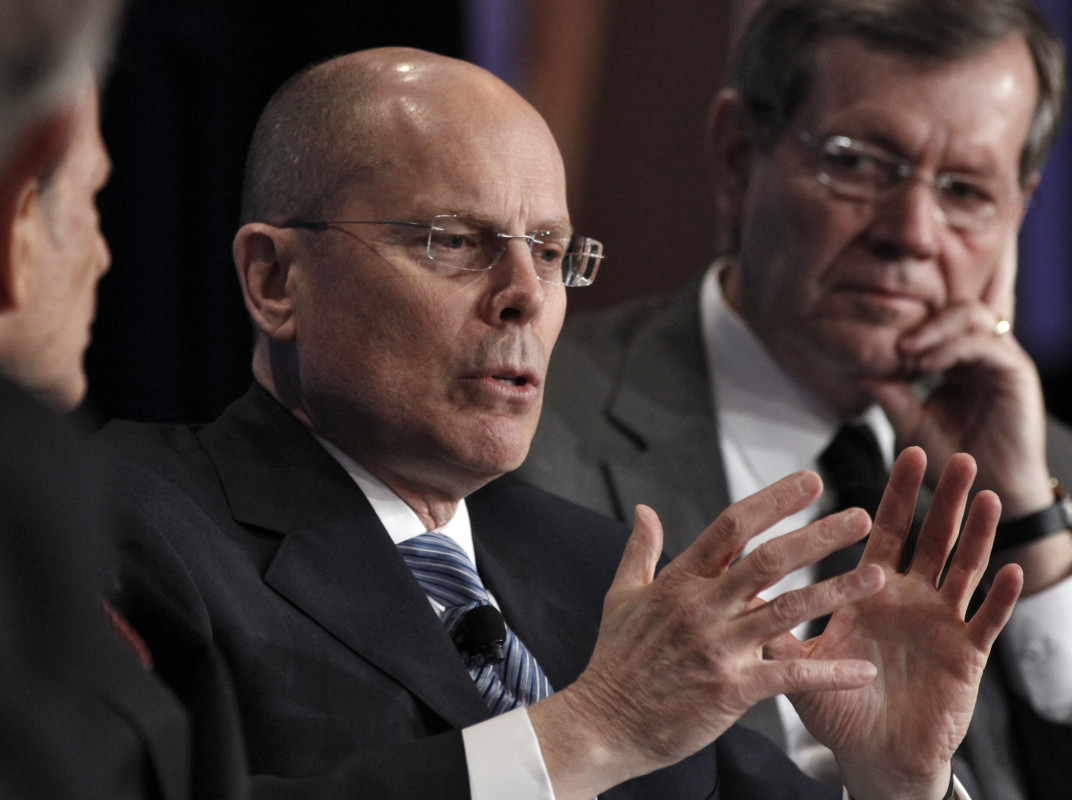Unitedhealth’s Shocking Move To Please Wall Street

UnitedHealth (UNH) has stumbled through what has been a testing year.
Sliding sales, a gloomy cost forecast, and a surprise profit cut rattled its investors early on.
????????Don't miss the move: Subscribe to TheStreet's free daily newsletter????????
Legal scrutiny added to the fire, along with a CEO scrambling to restore confidence.
However, just as we thought we had seen the stock’s worst, it has reportedly pulled off a quiet financial move that could prove to be the most shocking of them all.
UnitedHealth stock is under duress as it made a surprising move to win over Wall Street.Image source: Alcorn/Bloomberg via Getty Images
How UnitedHealth stock’s 40% slide started
UnitedHealth kicked off the year with a stark warning.
In early January, management told investors to brace for rising medical costs, forecasting a medical care ratio north of 86%, compared to the 85% Wall Street had priced in.
Then came the major gut punch in April.
UnitedHealth cut its full-year profit forecast from roughly $30 per share to a range of $26 to $26.50.
The medical insurance giant blamed unexpected service and care costs, in what was the sharpest guidance cut it had posted since early pandemic turbulence.
Related: One Washington move could shake Big Pharma to its core
The timing and size of the drop posed serious questions over the sustainability of UnitedHealth’s numbers and whether cost pressures were bleeding from the books.
Things only got worse.
In May, news broke that the Justice Department launched a criminal investigation into Medicare Advantage billing practices.
UnitedHealth, which has been no stranger to regulatory scrutiny, was suddenly in the DOJ’s crosshairs for potential fraud related to its coding systems.
By June, the newly reinstalled CEO, Stephen Hemsley, was doing a lot of the cleanup. He addressed shareholders directly, vowing to “earn back your trust.”
Consequently, as of mid-July, UnitedHealth stock has tanked over 40% year-to-date. Over the past six months alone, the stock has nosedived 46%.
UnitedHealth’s accounting twist dodges an earnings miss
Mr. Market almost missed UnitedHealth’s quiet financial moves.
According to Bloomberg, in protecting its impressive 60-quarter earnings beat streak, the company resorted to an accounting twist that’s now raising eyebrows.
UnitedHealth quietly sold stakes in multiple of its business units, generating $3.3 billion in profit, mostly in the back end of last year.
These weren’t traditional divestitures.
The deals, struck with firms like Warburg Pincus and KKR, reportedly included buyback clauses. UnitedHealth therefore has the right (or obligation) to repurchase the same assets at higher prices down the line.
Related: JPMorgan reveals 9 stocks with major problems
That kind of structure isn’t new to private equity circles, but the timing, terms, and secrecy are what’s turning heads.
People familiar with the transactions say UnitedHealth looked to push those deals to close by December 31, explicitly asking for them not to be publicized. That’s prompted speculation over sales engineering, in part, to ensure the businesses didn’t break their decades-long earnings streak.
In January, UnitedHealth barely beat Q4 expectations.
The company topped forecasts by seven cents, even as its medical care ratio rose, signaling higher health care expenses.
On its Q4 call and in its annual report, UnitedHealth talked about improving operating costs while noting a $3.3 billion gain.
However, it didn’t say what was sold or how the profits were booked.
More Stock News:
- Elon Musk's xAI is already shockingly massive
- Bank of America drops shocking call on Super Micro stock
- Cathie Wood drops bold message on Apple, Tesla stock
That detail flew under Wall Street’s radar at the time.
However, the latest scoop suggests that UnitedHealth may have posted its first earnings miss in more than 15 years, if it wasn’t for the last-minute financial engineering.
To be fair, UnitedHealth isn’t new to profit‑padding allegations.
As mentioned earlier, it's already in hot water with the Justice Department’s fraud unit for allegedly inflating Medicare Advantage reimbursements through aggressive diagnosis coding,
Going further back, it weathered an SEC probe in 2006 over backdated stock options, which eventually led to a massive $350 million settlement and the resignation of then‑CEO William McGuire.
Related: Google Brain founder has an unexpected one-word message on AI
Popular Products
-
 Gas Detector Meter
Gas Detector Meter$223.99$155.78 -
 Double Door Safe Box for Home & Office
Double Door Safe Box for Home & Office$449.99$313.78 -
 Biometric Pistol Case
Biometric Pistol Case$224.99$156.78 -
 Bluetooth 5.0 TPMS Tire Pressure Monitor
Bluetooth 5.0 TPMS Tire Pressure Monitor$60.99$41.78 -
 Smart WiFi Water Level Sensor
Smart WiFi Water Level Sensor$153.99$106.78